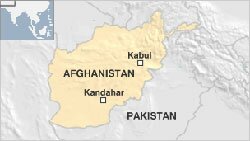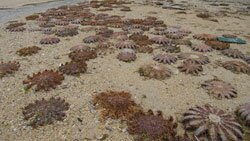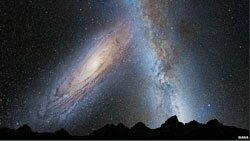
For the past two years Lebanon has tried to avoid getting drawn into the Syrian conflict on its borders. But last month Hezbollah, the country’s largest political party admitted sending thousands of guerrillas to fight on behalf of the Syrian regime. In return, Syrian rebels and their supporters have vowed revenge – inside Lebanon itself- and sectarian tensions are escalating across the country.
In a new documentary for BBC World News to be broadcast tonight (July 5th) and across this weekend (July 6th -7th) BBC Arabic reporter Nahed Abouzeid investigates a Lebanon teetering on the brink of an intra-religious war.
For Our World: Lebanon on the Brink, Nahed, who was born and grew up in Lebanon, explores why, after successfully rebuilding itself following a vicious civil war, his country is on the edge again, this time of someone else’s fight. For the half hour film Nahed talks to those caught up in the violence as well as gaining unique access to a fighter from the Lebanese Shia Muslim organization Hezbollah.
Located between Syria and Israel, Lebanon has frequently been caught up in the politics and violence of its more powerful neighbours. This time Lebanon faces sectarian violence between Sunni Muslims – who mainly support the Syrian rebels – and Shia Muslims, who mostly back the Syrian government in the capital Damascus.
From Al-Qusayr in western Syria, Nahed Abouzeid tells the story of a shattered and abandoned city which was a rebel stronghold, attracting anti-Assad Islamic militants from across the Muslim world. Supported by Hezbollah, the Syrian regime launched an attack in June this year and regained control over Qusayr from the rebels.
The undisguised intervention of Hezbollah’s Shia Muslim fighters has caused a sectarian backlash back across the border in Lebanon. Syrian refugees from Qusayr fled for their lives and now live in squalor just inside Lebanon’s northern border. “We were eating when the attack/shooting started. I’m an old woman and I have a bad back. We tried to escape and my kids literally had to drag me. And I was crying “leave me in a field, leave me to die…” Um Abdul Karim, a refugee in Lebanon tells the programme.
Her son Abdul Karim was a rebel fighter in Qusayr who used to admire Hezbollah for resisting Israel, but now sees their involvement in Syria as a betrayal. He says: “We were friends and neighbours and we used to trade with them.
Even the local bakery was a shared business. There were inter-marriages between Sunni and Shia…” “But due to the level of abuses, persecution and slaughter that they [Hezbollah] inflicted upon us we will never stand with them again, under any circumstances, never. For as long as we live…” Nahed also travels to the town of Hermel in the Bekaa Valley in eastern Lebanon, a couple of miles from the Syrian border.
Hezbollah fighters rarely speak to the media. But after extensive negotiations Nahed meets ‘Moussa’ (name changed) who fought in Qusayr. Talking only on agreement on anonymity ‘Moussa’ explains: "The people we’ve been fighting were very aggressive: no pushovers. They’ve fought in Afghanistan, in Chechnya, Bosnia-Hezegovina, in Libya, in Iraq, you name it.” He adds: “But Hezbollah has its own “Resistance Project” in the Middle East – though some are trying to destroy it. Hezbollah fought in Qusayr – and if we have to move onto Aleppo or Baghdad, we’ll do so. Hezbollah was built on blood and sacrifice – and we’ll keep fighting to protect our achievements."
As part of his investigation Nahed travels to North of Lebanon to Jebel Mohsen, a neighbourhood which is predominantly Alawite, supporting Al Assad’s regime and in constant armed fight with their neighbours in Bab al-Tabbaneh, which has a majority of Sunni inhabitants. In the Sunni district of Bab al-Tabbaneh, Nahed meets Sheikh Bilal al Masri, a local street preacher who runs his own mini militia and blames Assad supporters and Hezbollah for all the violence in his city. “Those who rule Lebanon are the Syrian regime’s supporters, they belong to Bashar al-Assad and the Iranians” he tells the programme.
When Sheik Bilal was asked about sectarian conflict, he comments: “This is the truth of Lebanon! The battle becomes sectarian. Just who are the victims here among the Lebanese? We used to live together with other sects until recently, but when we see a certain group – Alawites and Persian Shias – kills us Sunnis. What should we say? We say ‘We Sunnis are the victims…’.” On the other side of Syria Street, up on Jebel Mohsen, the pro-Assad Alawite community mirror their neighbours’ fears.
Abu Rami has been a militia fighter since the 1970s. He sees things only getting worse: “I tell you a Lebanese Civil War could start from right here in Jebel Mohsen and then spread across the country, then the whole region…clashes breaking out here, clashes breaking out there, they are turning it into ‘Either you are with us, or against us’.
So you ask me, from experience, could the fighting spread? I’ll say yes. Yes it could spread…” As the Syrian civil war casts its shadow across the entire Middle East, the Lebanese are nervously left wondering whether the sectarian fall-out from the battles across the border will tip their country once more into the abyss. What does the future hold for a country whose capital Beirut was once known as the ‘Paris of the Middle East’?












